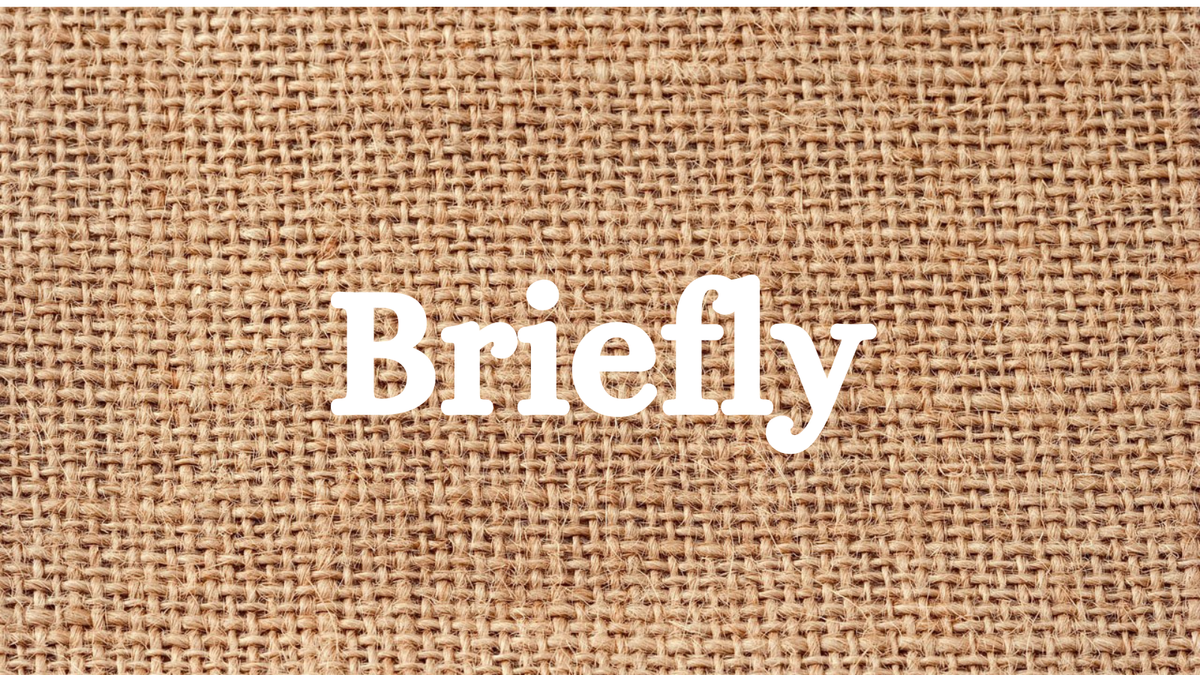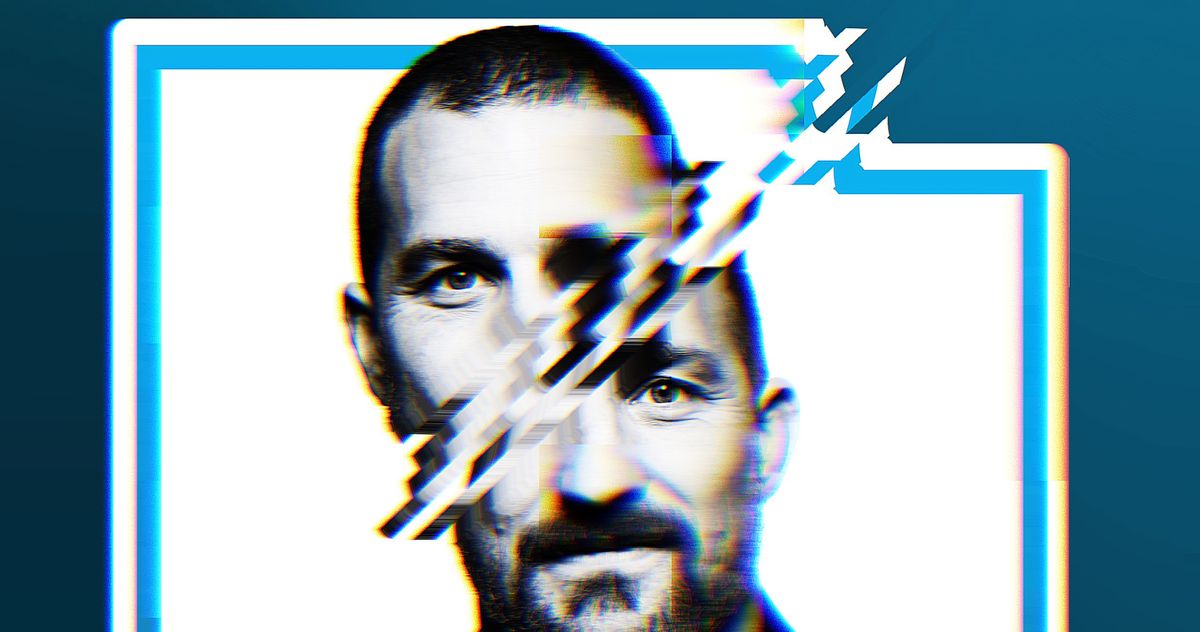
For the past three years, one of the biggest podcasters on the planet has told a story to millions of listeners across half a dozen shows: There was a little boy, and the boy’s family was happy, until one day, the boy’s family fell apart. The boy was sent away. He foundered, he found therapy, he found science, he found exercise. And he became strong.
Today, Andrew Huberman is a stiff, jacked 48-year-old associate professor of neurology and ophthalmology at the Stanford University School of Medicine. He is given to delivering three-hour lectures on subjects such as “the health of our dopaminergic neurons.” His podcast is revelatory largely because it does not condescend, which has not been the way of public-health information in our time. He does not give the impression of someone diluting science to universally applicable sound bites for the slobbering masses. “Dopamine is vomited out into the synapse or it’s released volumetrically, but then it has to bind someplace and trigger those G-protein-coupled receptors, and caffeine increases the number, the density of those G-protein-coupled receptors,” is how he explains the effect of coffee before exercise in a two-hour-and-16-minute deep dive that has, as of this writing, nearly 8.9 million views on YouTube.
Millions of people feel compelled to hear him draw distinctions between neuromodulators and classical neurotransmitters. Many of those people will then adopt an associated “protocol.” They will follow his elaborate morning routine. They will model the most basic functions of human life — sleeping, eating, seeing — on his sober advice. They will tell their friends to do the same. “He’s not like other bro podcasters,” they will say, and they will be correct; he is a tenured Stanford professor associated with a Stanford lab; he knows the difference between a neuromodulator and a neurotransmitter. He is just back from a sold-out tour in Australia, where he filled the Sydney Opera House. Stanford, at one point, hung signs (AUTHORIZED PERSONNEL ONLY) apparently to deter fans in search of the lab.
With this power comes the power to lift other scientists out of their narrow silos and turn them, too, into celebrities, but these scientists will not be Huberman, whose personal appeal is distinct. Here we have a broad-minded professor puppyishly enamored with the wonders of biological function, generous to interviewees (“I love to be wrong”), engaged in endearing attempts to sound like a normal person (“Now, we all have to eat, and it’s nice to eat foods that we enjoy. I certainly do that. I love food, in fact”).
This is a world in which the soft art of self-care is made concrete, in which Goop-adjacent platitudes find solidity in peer review. “People go, ‘Oh, that feels kind of like weenie stuff,’” Huberman tells Joe Rogan. “The data show that gratitude, and avoiding toxic people and focusing on good-quality social interactions … huge increases in serotonin.” “Hmmm,” Rogan says. There is a kindness to the way Huberman reminds his audience always of the possibilities of neuroplasticity: They can change. He has changed. As an adolescent, he says, he endured the difficult divorce of his parents, a Stanford professor who worked in the tech industry and a children’s-book author. The period after the separation was, he says, one of “pure neglect.” His father was gone, his mother “totally checked out.” He was forced, around age 14, to endure a month of “youth detention,” a situation that was “not a jail,” but harrowing in its own right.
“The thing that really saved me,” Huberman tells Peter Attia, “was this therapy thing … I was like, Oh, shit … I do have to choke back a little bit here. It’s a crazy thing to have somebody say, ‘Listen,’ like, to give you the confidence, like, ‘We’re gonna figure this out. We’re gonna figure this out.’ There’s something very powerful about that. It wasn’t like, you know, ‘Everything will be okay.’ It was like, We’re gonna figure this out.”
The wayward son would devote himself to therapy and also to science. He would turn Rancid all the way up and study all night long. He would be tenured at Stanford with his own lab, severing optic nerves in mice and noting what grew back.
Huberman has been in therapy, he says, since high school. He has, in fact, several therapists, and psychiatrist Paul Conti appears on his podcast frequently to discuss mental health. Therapy is “hard work … like going to the gym and doing an effective workout.” The brain is a machine that needs tending. Our cells will benefit from the careful management of stress. “I love mechanism,” says Huberman; our feelings are integral to the apparatus. There are Huberman Husbands (men who optimize), a phenomenon not to be confused with #DaddyHuberman (used by women on TikTok in the man’s thrall).
A prophet must constrain his self-revelation. He must give his story a shape that ultimately tends toward inner strength, weakness overcome. For Andrew Huberman to become your teacher and mine, as he very much was for a period this fall — a period in which I diligently absorbed sun upon waking, drank no more than once a week, practiced physiological sighs in traffic, and said to myself, out loud in my living room, “I also love mechanism”; a period during which I began to think seriously, for the first time in my life, about reducing stress, and during which both my husband and my young child saw tangible benefit from repeatedly immersing themselves in frigid water; a period in which I realized that I not only liked this podcast but liked other women who liked this podcast — he must be, in some way, better than the rest of us.
Huberman sells a dream of control down to the cellular level. But something has gone wrong. In the midst of immense fame, a chasm has opened between the podcaster preaching dopaminergic restraint and a man, with newfound wealth, with access to a world unseen by most professors. The problem with a man always working on himself is that he may also be working on you.
Some of Andrew’s earliest Instagram posts are of his lab. We see smiling undergraduates “slicing, staining, and prepping brains” and a wall of framed science publications in which Huberman-authored papers appear: Nature, Cell Reports, The Journal of Neuroscience. In 2019, under the handle @hubermanlab, Andrew began posting straightforward educational videos in which he talks directly into the camera about subjects such as the organizational logic of the brain stem. Sometimes he would talk over a simple anatomical sketch on lined paper; the impression was, as it is now, of a fast-talking teacher in conversation with an intelligent student. The videos amassed a fan base, and Andrew was, in 2020, invited on some of the biggest podcasts in the world. On Lex Fridman Podcast, he talked about experiments his lab was conducting by inducing fear in people. On The Rich Roll Podcast, the relationship between breathing and motivation. On The Joe Rogan Experience, experiments his lab was conducting on mice.
He was a fluid, engaging conversationalist, rich with insight and informed advice. In a year of death and disease, when many felt a sense of agency slipping away, Huberman had a gentle plan. The subtext was always the same: We may live in chaos, but there are mechanisms of control.
By then he had a partner, Sarah, which is not her real name. Sarah was someone who could talk to anyone about anything. She was dewy and strong and in her mid-40s, though she looked a decade younger, with two small kids from a previous relationship. She had old friends who adored her and no trouble making new ones. She came across as scattered in the way she jumped readily from topic to topic in conversation, losing the thread before returning to it, but she was in fact extremely organized. She was a woman who kept track of things. She was an entrepreneur who could organize a meeting, a skill she would need later for reasons she could not possibly have predicted. When I asked her a question in her home recently, she said the answer would be on an old phone; she stood up, left for only a moment, and returned with a box labeled OLD PHONES.
Sarah’s relationship with Andrew began in February 2018 in the Bay Area, where they both lived. He messaged her on Instagram and said he owned a home in Piedmont, a wealthy city separate from Oakland. That turned out not to be precisely true; he lived off Piedmont Avenue, which was in Oakland. He was courtly and a bit formal, as he would later be on the podcast. In July, in her garden, Sarah says she asked to clarify the depth of their relationship. They decided, she says, to be exclusive.
Both had devoted their lives to healthy living: exercise, good food, good information. They cared immoderately about what went into their bodies. Andrew could command a room and clearly took pleasure in doing so. He was busy and handsome, healthy and extremely ambitious. He gave the impression of working on himself; throughout their relationship, he would talk about “repair” and “healthy merging.” He was devoted to his bullmastiff, Costello, whom he worried over constantly: Was Costello comfortable? Sleeping properly? Andrew liked to dote on the dog, she says, and he liked to be doted on by Sarah. “I was never sitting around him,” she says. She cooked for him and felt glad when he relished what she had made. Sarah was willing to have unprotected sex because she believed they were monogamous.
On Thanksgiving in 2018, Sarah planned to introduce Andrew to her parents and close friends. She was cooking. Andrew texted repeatedly to say he would be late, then later. According to a friend, “he was just, ‘Oh yeah, I’ll be there. Oh, I’m going to be running hours late.’ And then of course, all of these things were planned around his arrival and he just kept going, ‘Oh, I’m going to be late.’ And then it’s the end of the night and he’s like, ‘Oh, I’m so sorry this and this happened.’”
Read the rest (the site says it's free for a limited time only . . . 3/26/2024)

More Coverage on this (Borderline) Non-Story

The death of Hugh Hefner and the dawn of the #MeToo era, coinciding in the autumn of 2017, seemed to mark a turning point in the history of social liberalism in America.
Out, at last, went Hefner’s sex-positive utopianism, the no-prudes-here giddiness and aspirational promiscuity that linked his “Playboy philosophy” to 1980s sex comedies, 1990s lad magazines, liberal excuses for Bill Clinton’s priapism and the sweeping cultural triumph of pornography.
In came #MeToo feminism, founded on outrage over rape and sexual assault, but inclined more broadly to regard hookup culture as a zone of danger, male desire as a force in need of correction and control, and bare consent as an insufficient criterion for sexual morality.
From the start the #MeToo movement was criticized, usually from a libertarian or classical liberal perspective, for reviving socially conservative or even Victorian impulses under a feminist and progressive guise. But it was precisely that remix that made the movement interesting: #MeToo took what had often been a conservative-coded critique of the sexual revolution — one that emphasized the ways that Hefnerism made life easy for pigs and libertines, forcing young women to accept male sexual expectations in the name of liberation — and promised to make it serve a more progressive and egalitarian vision.
The question seven years later is whether that vision actually exists — whether social liberalism can find a standard for sexual morality that’s better for human flourishing than bare consent, and a mechanism to constrain sexual misbehavior that’s more effective than the traditional emphasis on monogamy and chastity.
The first is a profile of Andrew Huberman, a pop neuroscientist, podcaster and all-around male influencer. The author, Kerry Howley, does a lot of work excavating Huberman’s manifold limitations — as a lifestyle coach and medical guru (don’t trust the effectiveness of the supplements he endorses!), a friend and colleague (don’t expect him to make good on his promises!), and especially as a boyfriend and lover (he controls, he lies, he cheats on six women at once).
The portrait of a figure like Huberman would be interesting under any circumstances. But the special focus on his sex life, the detailed testimony from allegedly mistreated girlfriends, marks this as very much a post-#MeToo profile. Huberman is not accused of any sexual crime; he’s seemingly just a creep, cheat and control freak. But that kind of misbehavior is treated as essential to any judgment of his public career. Whatever the new rules of sex might be, it’s clear that we’re supposed to judge the cad’s lifestyle as regressive, deplorable and wicked.
So what kind of lifestyle might be preferable? Well, here we can turn back a few issues to a New York magazine January cover story on polyamory, featuring both a profile of a specific polycule and an extensive guide to “opening” your relationship or marriage.












